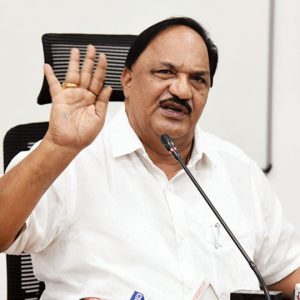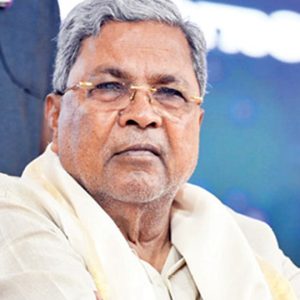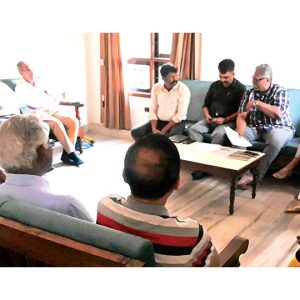By T.J.S. George
Love in the time of Cholera ended up with love winning; author Gabriel Marquez wouldn’t have it any other way. Struggle in the time of Corona is not that easily resolved because petty interests are involved. Donald Trump called it “Chinese Virus” although, in 2018, he took the irresponsible decision to fire the US Government’s entire pandemic response chain of command. Some of his countrymen are collecting firearms. Their reasoning: The virus crisis could lead to law and order problems with looting and robbing spreading everywhere. America always is America.
The way we respond to crisis situations sums up our personality, both as individuals and as a nation. When emergency situations stem from tragedy, the best of men are tested beyond their handling capacity. I have seen some of them doing their best to cope with problems even when they knew they were not succeeding. The famous Times of India editor Frank Moraes was caught in a family tragedy he could do nothing about. The distinguished M. Chalapathi Rao found himself pushed from the pinnacle of glory to a bottomless pit.
Frank Moraes was the ultimate gentleman, very proper in his interactions with others. Cub reporters would receive the same courtesy from him as the Prime Minister would. He faced embarrassments often for various reasons, but he tackled them with care and tact. When he became the first Indian editor of the Times of India, one of his first tasks was to have lunch with the new owner, Ramakrishna Dalmia. Moraes spoke no Hindi, Dalmia spoke no English, so an interpreter managed the conversation between editor and proprietor. Food was a bigger problem than conversation and the obligatory lunch became a labour of accommodation. Frank Moraes’ son Dom put it this way: “Dalmia was served his vegetarian repast in silver dishes. My father received his in earthenware utensils, later broken in the courtyard outside in case they polluted Dalmia’s caste. My father noticed this. It was an incident he never forgot.”
It was not the only unforgettable incident. Times of India’s properly British management had arranged for the dark-skinned Goan that was Moraes to eat his lunch in his own corner of the office, away from the British editors who formed the bulk of the writing staff and who had a dining room complete with table linen and uniformed butlers. Some enjoyed the pomp, but the younger British editorial hands saw it as racial discrimination and threatened to resign if it continued.
As he put up with all the goings-on, Frank Moraes maintained his elegant smile, never giving a hint that his personal life was immersed in tragedy. He had married Beryl for love. It did not take long for Beryl to lose her mental balance. Was Frank’s long absences in Burma and beyond as war correspondent a factor behind this calamity? All we know is that Beryl could turn violent. She would chase Dom around the house with a kitchen knife. Dom as a boy usually accompanied his father to the Times office and we thought the father was training the son. In fact it was a case of their managing their private tragedy. Eventually Beryl was committed to a Bangalore asylum where, after many years, she died unknown, unremembered. By chance, it fell to me to inform Dom who came and supervised the last rites of his mother.
For all his exterior calm, Frank Moraes was crushed within. His dependence on the bottle increased. By now, luckily for him, he had joined the Indian Express. Lucky because, when it became obvious that he was no longer in a position to function, Ramnath Goenka decided to take care of him. England was Moraes’ dream country and Goenka sent him to London, with arrangements for his lodging and comforts. The care and upkeep provided by a humane proprietor continued until Moraes died in London, aged only 67.
Chalapathi Rao was not that lucky. Legendary friend of Jawaharlal Nehru, he was the face of the National Herald which was once an integral part of the freedom movement. He devoted his life to the Herald. Post-Nehru India treated him cruelly. Indira Gandhi handed over the Herald to Yashpal Kapur, described as a Nehru family retainer, which is euphemism for servant. When servant turned into boss, the boss that was Chalapathi was reduced to servant. Summarily dismissed, too proud to seek help from friends, Chalapathi roamed the streets, unrecognised, until he perished, unknown. The time of Cholera and the time of Corona are not as heartless as the time of inhumanity.








Recent Comments